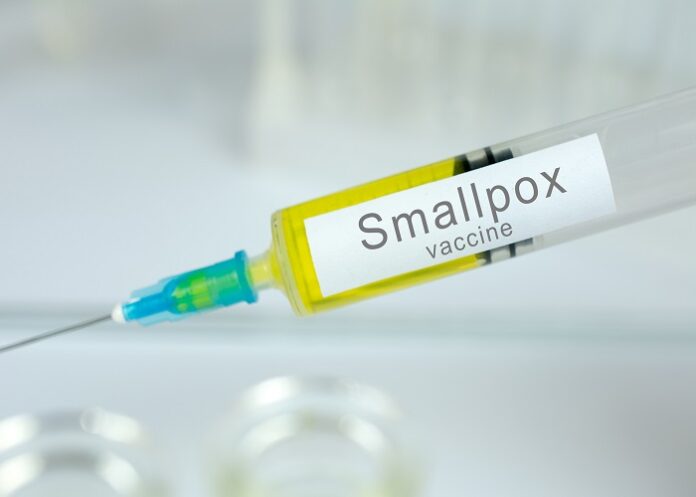Recent research suggests that receiving a single dose of one type of smallpox vaccine could reduce the risk of catching mpox by around 60%, but this might vary depending on the variant of the virus, said the experts involved.
Cases of mpox continue to surge in the Democratic Republic of the Congo and neighbouring countries, driven by the clade Ib variant. The vaccines used to protect against mpox were originally developed for smallpox, and while the two viruses are related, their efficacy for mpox specifically is unclear.
To learn more, Sharmistha Mishra at the Institute for Clinical Evaluative Sciences in Toronto, Canada, and her colleagues focused on the MVA-BN vaccine, also known as JYNNEOS, Imvanex and Imvamune. This was the most widely used smallpox vaccine in Western countries during the 2022 mpox outbreak, which was caused by the clade IIb variant.
Research suggests that MVA-BN’s efficacy for mpox varies hugely, from 36% to 86%, but that could be due to the studies being observational and comparing the outcomes of people with different ages, locations and health statuses, reports New Scientist.
Randomised control trials are currently under way among gay, bisexual and other men who have sex with men, who made up the majority of infections in Western countries during the 2022 outbreak, but in the meantime, Mishra’s team has attempted to mimic a randomised controlled trial by taking advantage of existing medical data.
The researchers looked at more than 6 000 men in Canada who were deemed to be at high risk of an infection in 2022. Around half received one dose of MVA-BN, while the rest hadn’t received any mpox vaccine. Men in the two groups were matched by factors such as age and location, said Mishra.
MVA-BN’s official regimen calls for two doses administered at least 28 days apart, but the Canadian Government initially opted for a single vaccine protocol to spread doses out to as many at-risk people as possible.
Over a follow-up period of around 80 days, 50 men in the unvaccinated group were diagnosed with mpox, compared with 21 in the vaccinated group, suggesting that MVA-BN lowered the risk by 58%, the team reported in The BMJ.
This is a good level of protection for a single dose, according to Adam Hacker at the Coalition for Epidemic Preparedness Innovations in London and Corine Geurts van Kessel at Erasmus MC in the Netherlands. “Scientifically, we know that two doses would have a higher efficacy,” said Hacker.
Geurts van Kessel said the team’s approach was a good way of mimicking a randomised controlled trial, but it is not known whether some of the men in their mid-50s or older had been vaccinated against smallpox when it was a threat, which could have affected their immune response to MVA-BN in 2022.
Studying how the vaccine might affect the severity of illness once infected with mpox would also help assess its overall efficacy, she said.
“We also don’t know how well it works against clade Ib specifically,” says Geurts van Kessel. But both she and Hacker expect MVA-BN to be at least somewhat as effective against this variant as it is against clade IIb, which continues to circulate in West and Central Africa.
Study details
Effectiveness of modified vaccinia Ankara-Bavarian Nordic vaccine against mpox infection: emulation of a target trial
Christine Navarro, Cindy Lau, Sharmistha Mishra et al.
Published in The BMJ on 11 September 2024
Abstract
Objective
To estimate the real world effectiveness of modified vaccinia Ankara-Bavarian Nordic (MVA-BN) vaccine against mpox infection.
Design
Emulation of a target trial.
Setting
Linked databases in Ontario, Canada.
Participants
A total of 9803 men aged ≥18 years with a history of being tested for syphilis and a laboratory confirmed bacterial sexually transmitted infection (STI) in the previous year, or who filled a prescription for HIV pre-exposure prophylaxis in the previous year. On each day between 12 June 2022 and 27 October 2022, those who had been vaccinated 15 days previously were matched 1:1 with unvaccinated men by age, geographical region, past HIV diagnosis, number of bacterial STI diagnoses in the previous three years, and receipt of any non-MVA-BN vaccine in the previous year.
Main outcome measure
The main outcome measure was vaccine effectiveness ((1–hazard ratio)×100) of one dose of subcutaneously administered MVA-BN against laboratory confirmed mpox infection. A Cox proportional hazards model was used to estimate hazard ratios to compare the rate of laboratory confirmed mpox between the two groups.
Results
A total of 3 204 men who received the vaccine were matched to 3 204 unvaccinated controls: 71 mpox infections were diagnosed, with 0.09 per 1000 person days (95% confidence interval (CI) 0.05 to 0.13) in the vaccinated group and 0.20 per 1000 person days (0.15 to 0.27) in the unvaccinated group over the study period of 153 days. Estimated vaccine effectiveness of one dose of MVA-BN against mpox infection was 58% (95% CI 31% to 75%).
Conclusion
The findings of this study, conducted in the context of a targeted vaccination programme and evolving outbreak of mpox, suggest that one dose of MVA-BN is moderately effective in preventing mpox infection.
See more from MedicalBrief archives:
Monkeypox possibly linked to decrease in smallpox vaccine – global experts
Africa still awaiting mpox jabs from the West, despite promises

